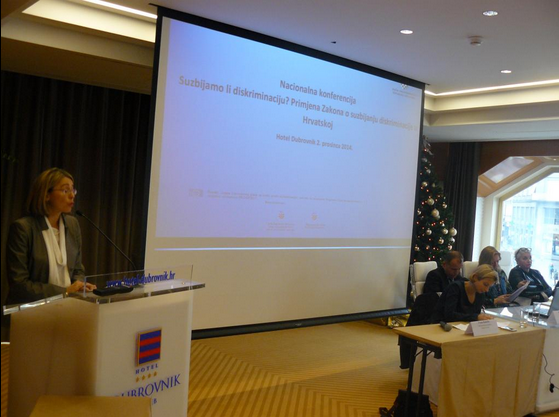Published on the occasion of the International Day of Older Persons, observed on Tuesday, 1 October 2024
Ombudswoman Tena Šimonović Einwalter has proposed to the Government of the Republic of Croatia an urgent amendment to the regulation governing the reimbursement of transport costs for medical treatment. Specifically, the introduction of the pilot project for free rail transport for persons over the age of 65 and pensioners—though a welcome and positive measure—has also resulted in negative consequences for older individuals who require medical care.
Since the launch of this project, people over 65 and pensioners have lost their entitlement to reimbursement of transport costs for treatment, as it is assumed that transport is now provided for them, even though, in practice, this is not the case for all—or not adequately so.
Firstly, public transport in general, including rail transport, is not accessible to those living far from a train station or those whose medical facility is far from a station. Secondly, train schedules can be entirely unsuitable for the time of the medical appointment, leading to unreasonably long waiting periods for older persons receiving treatment. Thirdly, for certain health conditions, public transport is not advisable, and the conditions on trains in Croatia are not always suitable for older persons with serious health issues.
As a result, persons over 65 and pensioners are placed in a less favourable position than others who are still eligible for the reimbursement of transport costs for medical treatment. They are required to cover their travel expenses out-of-pocket, as they are not reimbursed—on paper, transportation is “provided,” but in reality, rail transport is inadequate for their needs. Consequently, this project, intended to alleviate the financial burden on older persons, actually imposes additional financial strain on some and results in discrimination, which is prohibited under the Anti-Discrimination Act.
The Ombudswoman submitted her proposal to the Government after being contacted by citizens affected by this issue.
Among them is an oncology patient who recently underwent surgery for colon and liver cancer and travels for chemotherapy. As an immunocompromised individual, she should not use public transport. The Croatian Health Insurance Fund denied her reimbursement, referring to the Regulation and the Government’s pilot project, which purportedly provides free rail transport.
Another case involves a patient prescribed daily physical therapy due to mobility difficulties at a facility outside his place of residence. If he were to use rail transport, he would have to walk a total of 12 kilometres each day or pay for alternative transport to reach the train station, then the healthcare facility, and back home.
These practices stem from the current Regulation on the Conditions and Method for Exercising Rights under Mandatory Health Insurance, which stipulates that an insured person is not entitled to reimbursement of public transport costs if they are “fully exempt from such costs under special regulations or other acts of the competent authorities (e.g. recognised right to free transport: for children up to a certain age, students, persons over 65, etc.).”
The current method of defining reimbursement for transport costs for medical treatment is inadequate, both in terms of the amount and the conditions for entitlement based on distance, as noted by the Ombudswoman in her analysis of the right to health in her 2023 Annual Report. The proposal for an urgent amendment to the Regulation was submitted to the Government in March, but no changes have been made to date.





